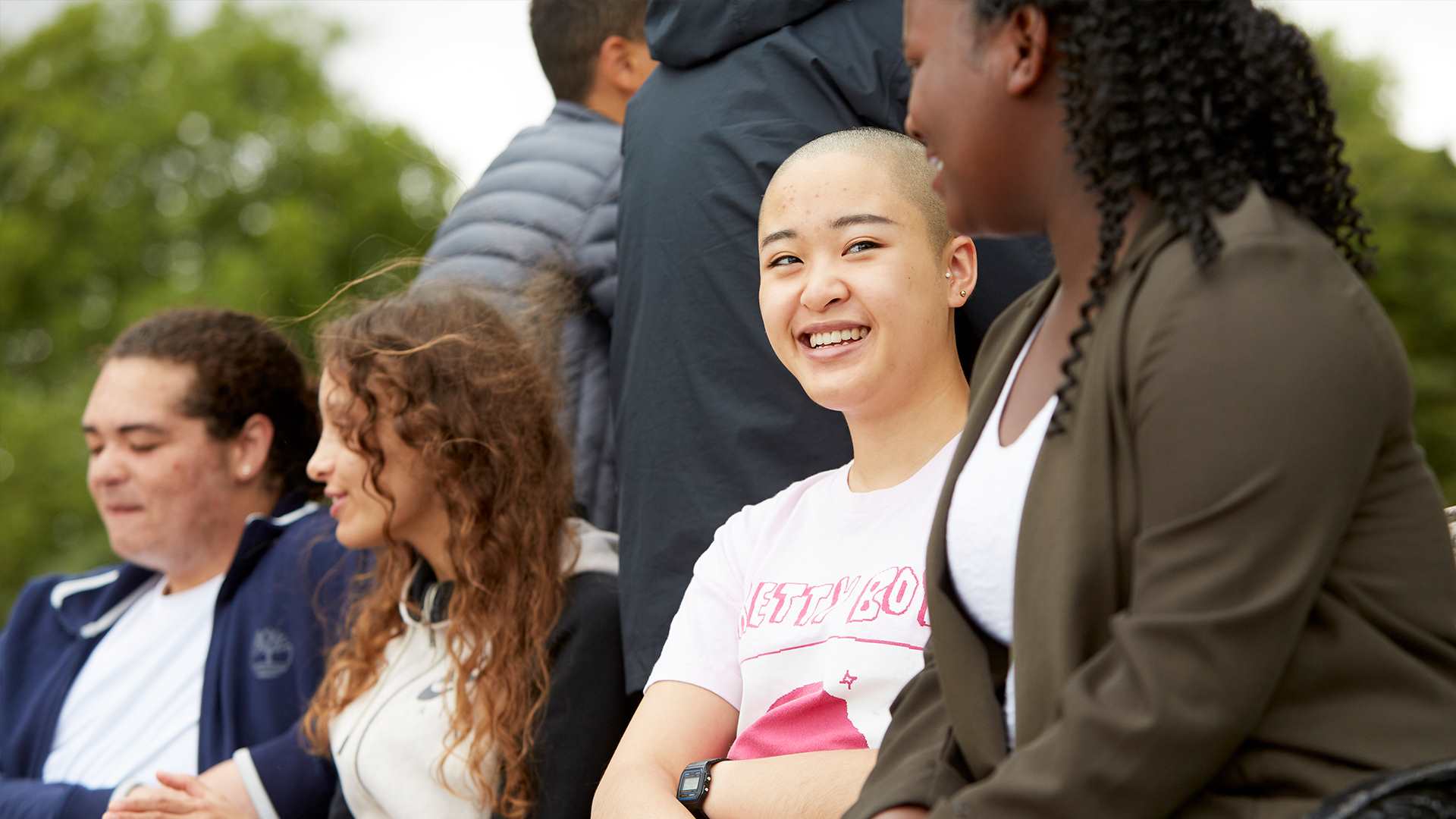Topics mentioned: anxiety, depression, looking after yourself at uni, counselling and therapy
About: Jasmine shares her story of struggling with depression and anxiety at university, and how she found help and support through therapy.
I felt my mental health gradually beginning to decline at university, but I didn’t realise until I was already very low.
I have had to deal with depression and anxiety for most of my teenage years, but only started to fully accept it and deal with it while at university in London.
Treading water
Previously, I was in denial to others and to myself. I felt as though I had to constantly, as the cliché goes, “put on a brave face”. Always present at lectures, always helping out with various societies and departmental activities, and always doing my best to seem cheerful.
I was afraid that other people would judge me if I told them how I was feeling – or worse, somehow use the knowledge to their advantage. So I kept people at arm’s length.
Above all, I was afraid of acknowledging the amount of work I had to do in order to improve my mental wellbeing. It’s not easy, and it’s not instant. It’s a process, and a difficult one at that.
After years of treading water, I felt my mental health gradually beginning to decline at university, but I didn’t realise until I was already very low. As a perfectionist, I've always excelled at school and work, and most of the praise I ever received was based on this one part of me – my academic intelligence.
Although I wasn’t fully conscious of it at the time, I had internalised this and accepted a false sense of self. One that was based on the approval I sought from others through being a high achiever.
I felt as though I had to constantly, as the cliche goes, “put on a brave face”.
Striving for perfection
My perfectionism was beginning to seep into other areas of my life. I had to be the perfect friend, girlfriend, flatmate and daughter, and I could not forgive myself if I was anything less.
On occasion I would even project these unrealistically high expectations that I held for myself onto others. I felt a strong pang of guilt whenever I did this or put my own needs above anybody else’s. So, I learnt to repress my feelings and turn my attention outwards instead.
Because I was spending hours every day agonising over my faults and failures, I was finding it increasingly difficult to concentrate on lectures, coursework and revision. The work was also becoming more challenging, requiring more extra reading and planning.
I felt like the pressure to do well was too much, and the pile of tasks I would have to complete to make the work perfect was stacked too high. I would turn my back on it until the last minute, which was often the day of the deadline.
I would get up early and hurriedly rush through writing the essay or cramming facts into my head, pumped on anxiety and adrenaline. Nervously, I would await the results, frustrated with myself for allowing this to happen again.
I felt like the pressure to do well was too much, and the pile of tasks I would have to complete to make the work perfect was stacked too high.
Feeling isolated
I was focusing too much on the approval that I so craved, rather than the actual content of the course. I was driven by a need for acceptance rather than success and a love of learning.
At a loss, I tentatively started talking to well-meaning friends about my procrastination, but I decorated my concerns with humour. Because of this, and the fact that my grades were actually still very high, I can understand why they struggled to take me seriously.
By this point I was feeling more and more isolated, sinking deeper into the pit of depression and suicidal thoughts. I spent too much time in my room, made excuses, and slept only a couple of hours a night.
I was driven out of my room to lectures and social events only by the fear of what would happen if I missed them. To compensate, I tried harder to appear cheerful and increased my use of humour as a defence mechanism.
By this point I was feeling more and more isolated.
Getting help
I actually fell into therapy by accident. I was so focused on maintaining an impenetrable façade and trying to help solve other people’s problems, that I arranged an appointment with my university’s counselling service.
At my initial consultation, I quizzed the therapist on ways in which I could help those close to me, confused when she kept asking about my feelings and family history.
“Why is this relevant?” I would repeat, batting her away, uncomfortable with the attention I was receiving. I felt like I was such a horrific person that I didn’t even deserve personal therapy.
My counsellor suggested six weeks of therapy with her, an offer that I semi-reluctantly took up seeing as I had nothing to lose. Over the time that I saw her, the more she persisted, the more I resisted. I would try to distract her by rambling on about irrelevant things or deflecting her observations with humour.
Although I was frustrated with myself for not opening up, I thought that if she saw me for who I really was then I would be harshly judged – which was worse than being accepted on a superficial level.
I thought that if she saw me for who I really was then I would be harshly judged.
Looking after me
Eventually, I could no longer ignore this pattern and had to acknowledge that yes, I was struggling. No, focusing purely on helping others while ignoring myself would not somehow magically make my own issues disappear.
I tested the waters by gradually exposing more of my vulnerabilities to the therapist. To my surprise and delight, they were not met with criticism and judgement, but understanding and caring.
By exploring my past and current relationships - including the one that I had with her - she helped me piece together how the dynamics of certain relationships in my home life were continuing to affect me into adulthood. I became more able to explore my own identity and needs.
Because the number of sessions is limited, I am soon to be referred externally to continue the work that I have begun. Although I still have a lot more work to do, I'm already improving massively and am more able to apply what I have learnt in therapy to everyday life.
Although I still have a lot more work to do, I am already improving massively and am more able to apply what I have learnt in therapy to everyday life.
My advice if you are struggling at uni
-
Talk to someone
To anyone with whom this resonates: I know that you hear this over and over but please, please, please find someone that you can talk to. This can be a family member, counsellor, doctor, trusted friend, internet forum – anyone who you feel safe confiding in, and who will be willing to listen without judging.
-
Find out what support your uni offers
If you feel like therapy would work for you, now is a good time to try it while you are at university and it is free. By improving your relationship with yourself, you will automatically improve your relationships with others and your attitude towards work.
-
Be kind to yourself
Do not beat yourself up if you feel unable to open up just yet. Becoming frustrated with yourself may only worsen the problem. It might take several months or years to improve. Take it easy, and be kind to yourself. Whether you believe it or not, everyone deserves their best chance to remove the chains of despair, giving them the freedom to live a true and happy life.
Asking for help is not a weakness. Reaching out actually requires strength. And while it may seem that everyone around you is cheerful and effortlessly managing all aspects of life (I am one of those annoying people who appear that way), whatever issue you have, it is almost certain that someone else has it too.
Whatever issue you have, it is almost certain that someone else has it too.
Where to get help
However you're feeling, there are people who can help you if you are struggling. Here are some services that can support you.
-
Student Minds
Supports students to look after their mental health by providing information and advice.
They also provide details about local services offered by universities and information on how you can access support group programmes.
You can call or email for more information (this is not a helpline).
-
Student Space
Provides mental health support to students.
Find what support is available at your university.
Webchat service available.
- Opening times:
- 4pm - 11pm, 7 days a week
-
Samaritans
Whatever you're going through, you can contact the Samaritans for support. N.B. This is a listening service and does not offer advice or intervention.
- Opening times:
- 24/7






